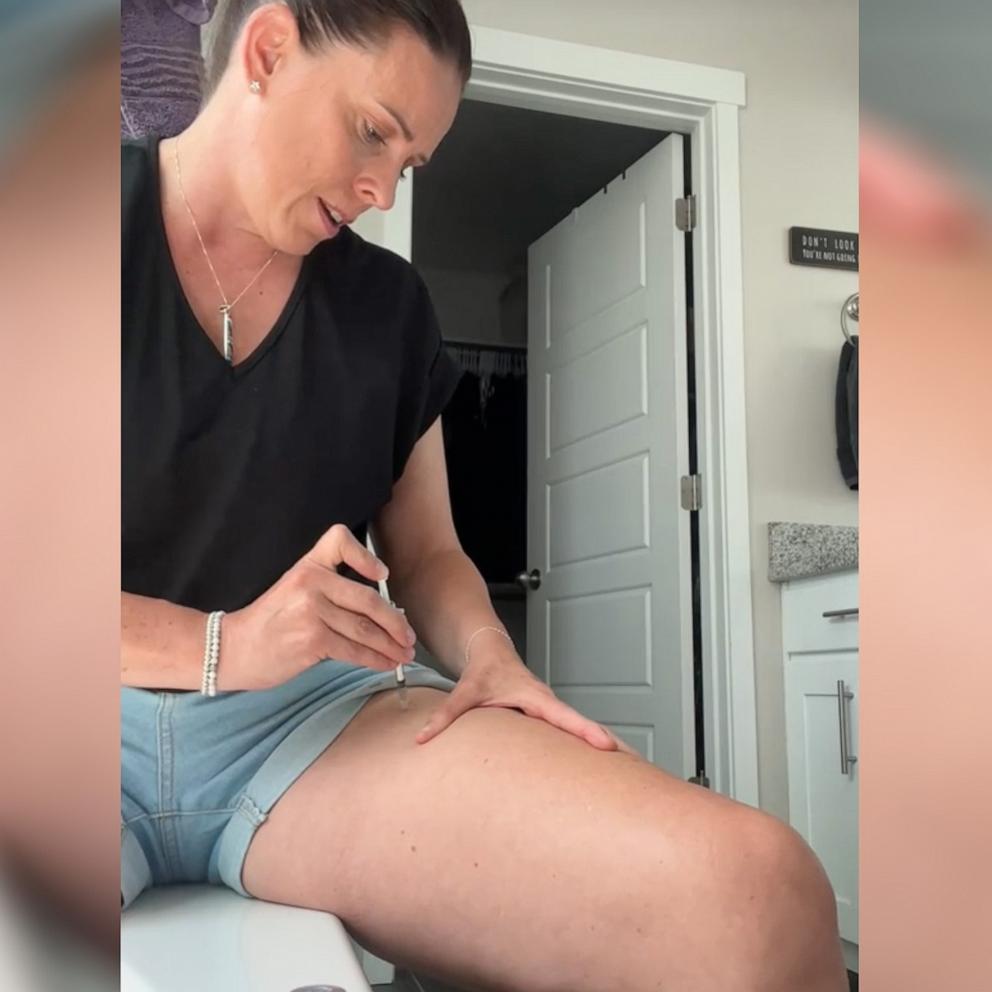Biden administration announces new steps to protect contraceptives, abortion medication on Roe anniversary
The Biden administration announced new steps Monday to expand access to contraception, abortion medication and emergency abortion care at hospitals on what would have been the 51st anniversary of Roe v. Wade.
It's the latest attempt by the federal government to preserve abortion access and protect reproductive health care since the Supreme Court's decision in June 2022 to end federal protections for abortion rights.
The initiatives are expected to be announced at a meeting President Joe Biden is holding Monday afternoon with his Task Force for Reproductive Healthcare Access, during which physicians who practice in states where abortion was restricted following the overturning of Roe will discuss their personal experiences.
To strengthen contraception access, the administration said it will implement several measures, including federal agencies issuing new guidance to "clarify standards" and make sure Food and Drug Administration-approved contraceptive medications are available for free under the Affordable Care Act.
Xavier Becerra, the secretary of Health and Human Services, issued a letter Monday to various insurers -- including private companies, state Medicaid plans, Medicare plans and the Children's Health Insurance Program -- reminding them of their obligations to cover contraceptives for those on their plans.

"As a reminder, plans and issuers subject to the requirement to cover preventive services must provide the full range of FDA-approved, -cleared or -granted contraceptives (including emergency contraception), effective family planning practices, and sterilization procedures to prevent unintended pregnancy and improve birth outcomes," he wrote.
Additionally, the Office of Personnel Management will offer new guidance to insurers making sure contraception access is strengthened for federal workers, retirees and family members.
The HHS is also announcing a "comprehensive plan" to increase awareness and understanding about the Emergency Medical Treatment and Labor Act, which requires patients to receive emergency medical care regardless of their ability to pay.
In July 2022, the HHS issued guidance that under the EMTALA, which was passed in 1986, doctors must perform abortions in emergency departments -- even in states where the procedure is illegal -- if the patient needs "stabilizing medical treatment" for an emergency medical condition.
The administration's new initiative will also include distributing resources about rights for patients and materials for health care providers about complying with federal requirements. It comes as the Supreme Court is set to hear a case about whether abortion care can be provided under the EMTALA.
The Supreme Court is also expected to review a lower court's decision to restrict nationwide access to mifepristone, one of two abortion pills, which was approved by the FDA in 2000.
In the Monday announcement from the White House, the administration said the FDA and the Department of Justice would defend access to mifepristone before the court.
Separately, Vice President Kamala Harris is kicking off a series of abortion rights events, starting in Wisconsin on Monday, where she is expected to denounce a recent bill presented by Republican lawmakers to limit abortion after 14 weeks.

"Even as Americans -- from Ohio to Kentucky to Michigan to Kansas to California -- have resoundingly rejected attempts to limit reproductive freedom, Republican elected officials continue to push for a national ban and devastating new restrictions across the country," Biden said Monday in a statement. "On this day and every day, Vice President Harris and I are fighting to protect women's reproductive freedom."
During a press briefing Monday, Jen Klein, director of the White House Gender Policy Council, said Biden has been urging Congress to restore federal protections for abortion.
"The president has been quite clear since Roe v. Wade was overturned, the ultimate solution is to pass federal national legislation to restore the protections in Roe, and we will continue to work to hope that Congress will pass that legislation so the president can sign it," she said.
Since the Supreme Court's decision, at least 16 states have ceased nearly all abortion services, according to an ABC News tally.
Arizona, Florida, Nebraska, North Carolina and Utah also have bans in place ranging from 12 weeks to 18 weeks, according to the Guttmacher Institute, a research group that studies sexual and reproductive rights.




